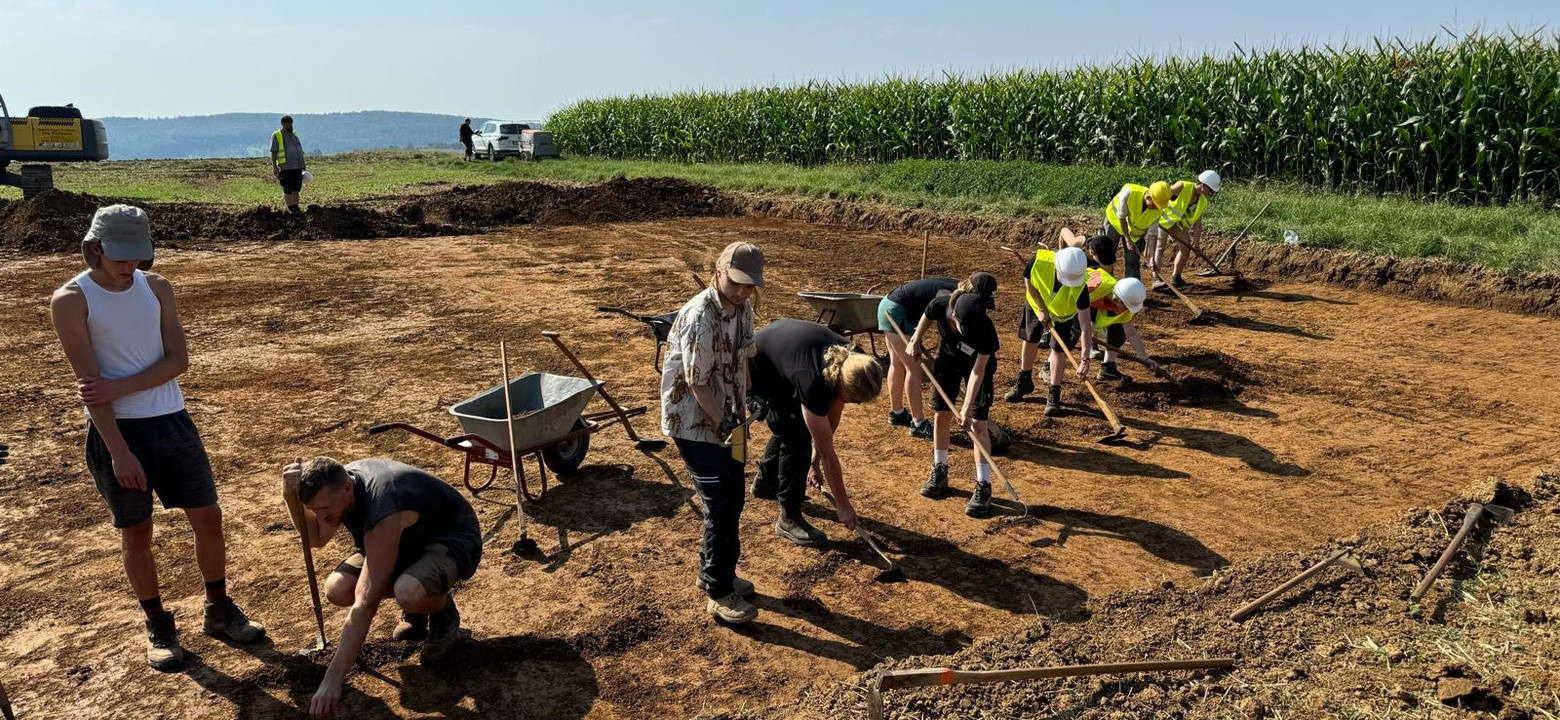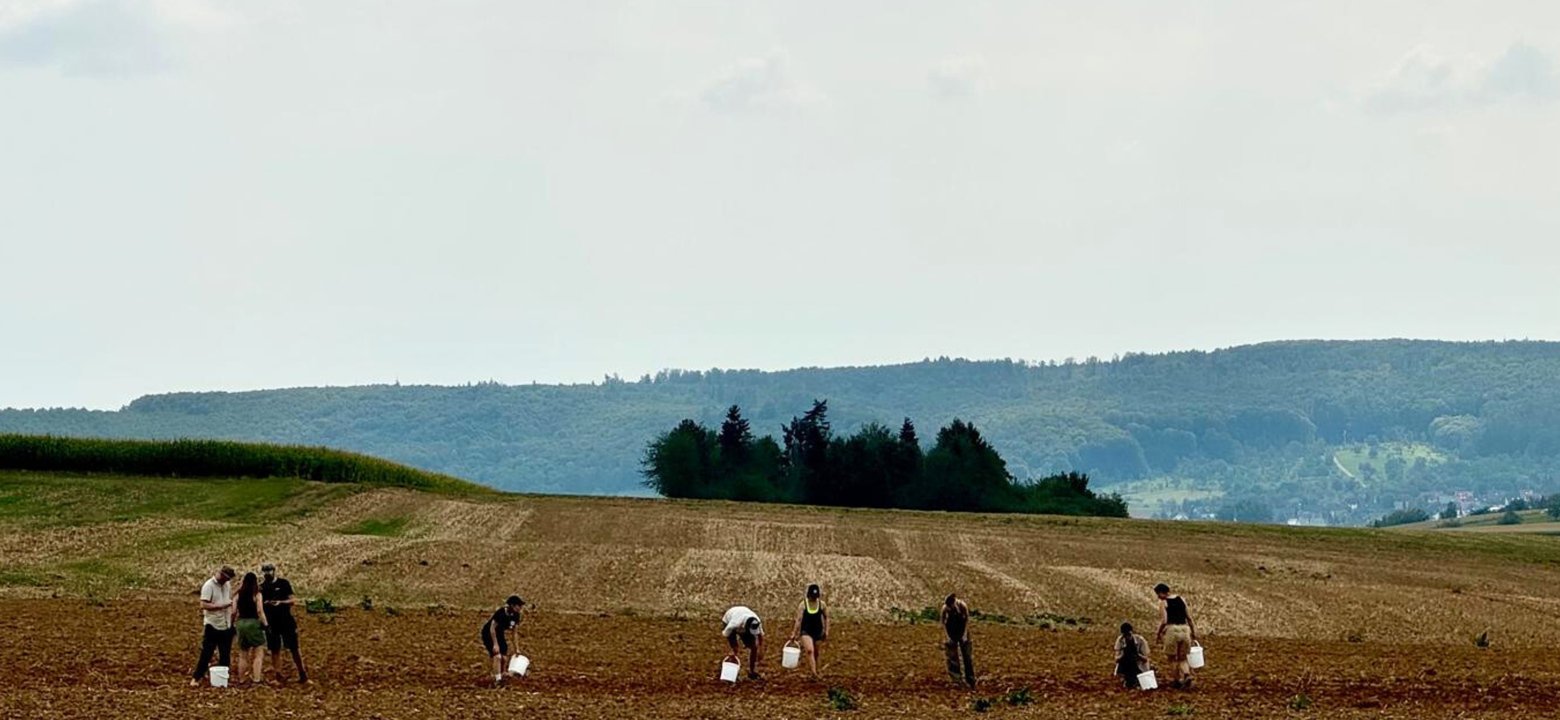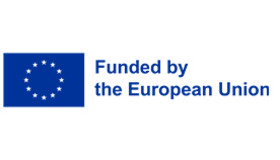International experience for Archaeology students: pilot scheme with short fieldwork projects abroad
Saxion’s Archaeology Programme is the only applied university archaeology study programme in the Netherlands. “Our growth has mushroomed in recent years and we now have more than 150 first-year students,” says Kris Brussen, lecturer and internationalisation coordinator at the programme. A full curriculum makes it difficult to incorporate an experience abroad. Nevertheless, the programme wants to be able to provide its students with this opportunity. This is the reason why a pilot scheme has been started with short fieldwork projects abroad. Ten students have already taken part in an international archaeological excavation in Germany.
Why do you believe it is important that archaeology students get international experience?
History and culture are not confined by borders. The people who once lived in the Netherlands were already knowingly or unknowingly, part of a larger international network. During an international excavation, this shared past literally becomes tangible for our students.
The social aspect of an international experience is also very important to us. You learn to interact with other people and use other archaeological methods as well as being very good for your professional development and network, for example if you want to do an English-taught master's degree.

Students during the archaeological excavation in Germany
Spending a long period abroad is difficult to fit in the archaeology programme, why is that?
The programme mainly focuses on Dutch professional practice and all the national protocols, guidelines and laws that go with it. More than 15 years ago - in collaboration with those involved in fieldwork - we started to train more technically skilled field archaeologists. This was to supplement the mainly theoretically educated university archaeologists.
Archaeology, like many other professions, is constantly developing. We have continued to broaden the programme in recent years. We do this to also help prepare our students for professions outside archaeological fieldwork. As a result, the programme’s curriculum is pretty ‘full’, making it difficult to arrange a longer experience abroad.
How do you still manage to incorporate an international experience for archaeology students?
This academic year we’ve started a Short-term Blended Mobility pilot scheme. This involves short fieldwork projects lasting at least two weeks, but with a maximum of four weeks spent abroad. They are supervised by programme lecturers together with local partners. The projects are always kicked off or concluded with an online session. The fieldwork mainly takes place in the summer months.
Early in September, ten Saxion archaeology students travelled to the town of Glauburg in Germany to participate in an archaeological excavation. This research took place as part of an annual Summer School involving the Keltenwelt am Glauberg museum, the University of Winchester and Saxion, among others. We have been involved in this excavation since 2013, and we also contribute to its annual publication in a journal.
During the day they work together in the excavation pit and in the evening they exchange ideas.
What was it like for students to participate in an archaeological excavation in Germany?
A total of about 30 students take part in the exchange every year, hailing from the United Kingdom, Denmark, Germany, Ireland and the Netherlands. This time ‘Eisenkaute’, a local hill, was the main location where students searched for remains of iron mining. Although it was assumed that iron ore was already mined here during the Iron Age, the traces found turned out to date from the Modern Age. A prehistoric pit was also found with many pottery shards and flint material from the early Neolithic Rössen culture.
Fieldwork is the key focus of the exchange. In addition to new methods and techniques, students also learn how archaeological research is organised in Germany. Perhaps even more important though, is the social interaction between students. They become part of a group for two weeks that does practically everything together. During the day they work together in the excavation pit and in the evening they exchange ideas. They learn from each other what it is like to live and study in other countries. The WhatsApp group that was created last summer is still active and news is still regularly exchanged.

Do you see the possibility of incorporating the international fieldtrip as a permanent part of the archaeology study programme?
The pilot schemes involving short-term, ‘summer’ fieldwork are very popular among our students. In addition to Germany, we are also going to be carrying out excavations led by our lecturers, in Italy and England along with our international partners. In this way, we hope to be able to offer a permanent feature of short-term international fieldwork at the end of the second academic year.
This fieldwork already took place in a personal capacity during free time, but we want to support students and lecturers more actively in this regarding the allocation of grants, study credits and study hours.
| Project Code: | 1-2023-1-NL01-KA131-HED-000114184 |
| Action Type: | KA131-HED – Mobility of Higher Education students and staff supported by external policy funds |
| Agency: NL01 - Nationaal Agentschap Erasmus+ Onderwijs Training | |
